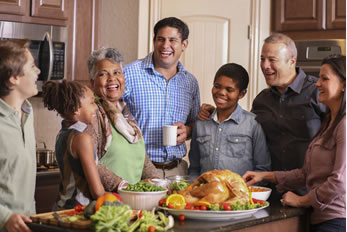
Living With a Diverse Family
As the demographics of the United States continue to change, our view of the traditional American family is transforming as well. Interracial families, divorces, step families, homosexuality, changes in gender roles, foster parents, varying religious backgrounds, physical challenges, and mental illness are all factors that contribute to the diversity of today’s American families.
Although diversity is positive, it may be harder for some of us to adjust and connect with family members of starkly different beliefs or backgrounds. Although facing differences may be a challenge, it is important to address family relationships as they greatly contribute to the quality of our lives. Fortunately, there are ways we can communicate to ensure we respect others, regardless of our differences. The following are ways we can better connect with our diverse family members:
- Be mindful of your language – Steer clear of using stereotypes for references. If you are unsure how to address someone’s sexual orientation or ethnic background, ask. Learn to listen to the tone of language to make sure you are being respectful.
- Clear up expectations – Verbally communicate your own expectations and clarify others’ expectations. If you find someone’s actions or statements to be offensive, speak up. What others find offensive may not be the same for you. Open the conversation to allow a dialogue – not everyone has a clear understanding of your expectations unless you voice it.
- Allow room for mistakes – Forgive yourself and others if unintentional insensitivities or statements slip and use these as learning opportunities. We all have different ways of communicating; developing cross-cultural communication skills takes time.
- Get involved – Make the effort to understand and learn what life is like for this family member. Spend one-on-one time and learn why this person’s religion means so much to them, or what daily life is like for someone with a mental illness.
- Have patience – It’s okay to disagree with our family members’ perspectives. People have different ways of seeing the world. We can’t always change their perspective, but we can change the relationship we have with them into one that is positive and accepting of our differences.
We have our differences, but it is also important to remember what we have in common. Focusing on similarities can bridge the distance between you and the other family member. Seeking a therapist will also help you work towards improving family relationships. At Counseling California, our experienced MFTs will work with you to mend and sustain lasting, positive family relationships. Get in touch with us today!
Find a Therapist
Back